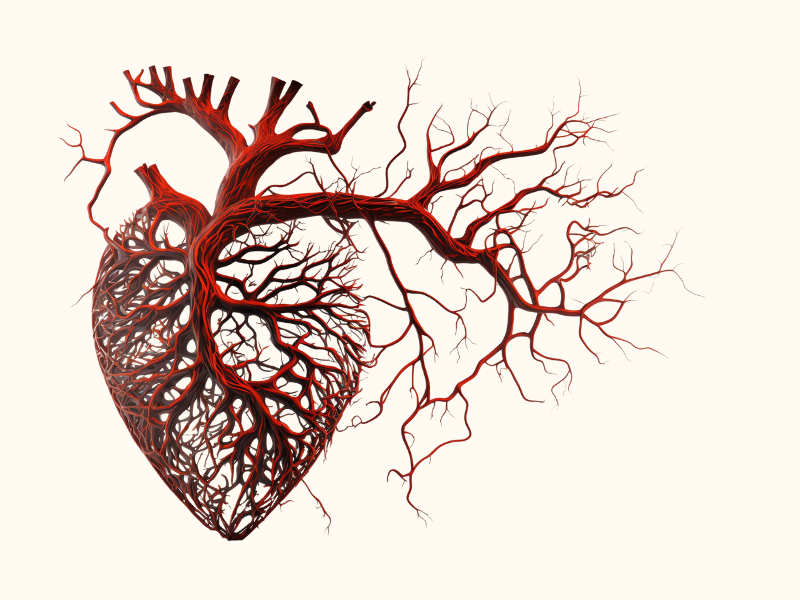27/09/2021
How to lower your cholesterol

Researchers have found two compounds that work together to safely lower dangerous LDL cholesterol and simultaneously boosting protective HDL.
Statins are one of the most commonly prescribed drugs worldwide. (1) Yet an estimated 17.9 million people died from cardiovascular diseases in 2019, representing 32% of all global deaths. Of these deaths, 85% were due to heart attack and stroke. (2)
A long-standing concern with statins is that they reduce the production of essential coenzyme Q10, which may ultimately raise some cardiovascular risks in certain populations. (3,4)
Safe cholesterol balance
Lowering LDL is one piece of the puzzle for preventing heart disease. Another component is to raise HDL levels, which removes cholesterol from blood vessel walls and protects it from oxidation. (5,6) Researchers have found two nutrients that can do just that. (7)
The two componds pantethine and leaves of artichoke can offer protection against the two causes of vascular disease. They are found to work together to safely lower dangerous LDL cholesterol — while simultaneously boosting protective HDL.
Pantethine
A derivative of vitamin B5, called pantethine, reliably lowers LDL cholesterol and at the same time maintaining CoQ10 at protective levels—resulting in an 11% reduction in major coronary heart disease events. (8)
Studies indicate that pantethine helps reduce cholesterol levels by dual mechanisms—reducing the rate of new cholesterol production and speeding the breakdown of existing cholesterol. (8)
Both lab and clinical studies show that these mechanisms lead to real-world reductions in dangerous cholesterol levels.
Leaves of artichoke
An extract from the leaves of artichoke has been shown to raise protective HDL levels without harmful side effects of statins. (9)
Studies in humans demonstrate that supplementation with artichoke leaf extract raises levels of the protective apoA carrier molecule that supports the HDL particle (10), which contributes to observed increases in beneficial HDL levels (11).
Take care of your heart
Help maintain vascular health: Super K
Folate and vitamin B12 for heart and brain health: BioActive Folate & Vitamin B12 CoQ10 can support aging cells as well as cardiovascular healh: Super Ubiquinol CoQ10 with Enhanced Mitochondrial Support™
Support a healthy heart and cardiovascular system: CHOL-Support™
References
1. https://www.fiercehealthcare.com/practices/study-suggests-doctors-may-want-to-rethink-statin-prescribing
2. https://www.who.int/news-room/fact-sheets/detail/cardiovascular-diseases-(cvds)
3. Maes M, Mihaylova I, Kubera M, Uytterhoeven M, Vrydags N, Bosmans E. Coenzyme Q10 deficiency in myalgic encephalomyelitis/chronic fatigue syndrome (ME/CFS) is related to fatigue, autonomic and neurocognitive symptoms and is another risk factor explaining the early mortality in ME/CFS due to cardiovascular disorder. Neuro Endocrinol Lett. 2009;30(4):470-6.
4. Molyneux SL, Florkowski CM, George PM, et al. Coenzyme Q10: an independent predictor of mortality in chronic heart failure. J Am Coll Cardiol. 2008 Oct 28;52(18):1435-41.
5. Barter P. HDL-C: role as a risk modifier. Atheroscler Suppl. 2011 Nov;12(3):267-70.
6. Barter, P. The role of HDL-cholesterol in preventing atherosclerotic disease. Eur Heart J Supp. 2005;7(suppl F):F4-F8.
7. https://www.lifeextension.com/magazine/2015/5/natural-methods-to-control-cholesterol
8. Evans M, Rumberger JA, Azumano I, Napolitano JJ, Citrolo D, Kamiya T. Pantethine, a derivative of vitamin B5, favorably alters total, LDL and non-HDL cholesterol in low to moderate cardiovascular risk subjects eligible for statin therapy: a triple-blinded placebo and diet-controlled investigation. Vasc Health Risk Manag. 2014;10:89-100.
9. Rondanelli M, Giacosa A, Opizzi A, et al. Beneficial effects of artichoke leaf extract supplementation on increasing HDL-cholesterol in subjects with primary mild hypercholesterolaemia: a double-blind, randomized, placebo-controlled trial. Int J Food Sci Nutr. 2013 Feb;64(1):7-15.
10. Matsuyama A, Sakai N, Hiraoka H, Hirano K, Yamashita S. Cell surface-expressed moesin-like HDL/apoA-I binding protein promotes cholesterol efflux from human macrophages. J Lipid Res. 2006 Jan;47(1):78-86.
11. Rondanelli M, Riva A, Sala P, Giacosa A. Pilot study on the efficacy of 200 mg daily dose of PYCRINIL on glyco-lipidic parameters in adult subjects with mild hypercholesterolemia: University of Pavia, Department of Public Health, Experimental and Forensic Medicine, Section of Human Nutrition, Azienda di Servizi alla Persona, Pavia, Italy; 2014.
Other blog topics
- NAD+: Stem cell renewal & mitochondria regeneration
- Fight your fatigue with french oak wood
- Brain: Support your memory and ability to concentrate
- Health basic — start your journey here
- A healthy prostate
- See all blog posts





